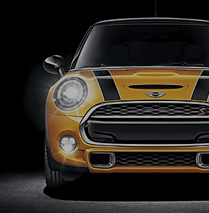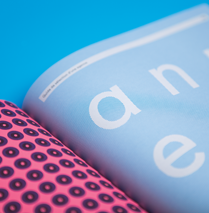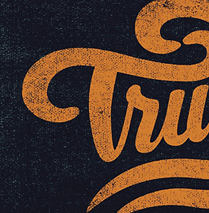In Tuscany, there’s a little restaurant called Casetta Magli. If you show up there when their doors open, expect the owner to tell you that the antipasti isn’t even close to being ready, but listen, why don’t you sit out on the deck and enjoy the view of the valley while you have a nice bottle of wine? And when you finally do order dinner, well, don’t expect it to come out in 20 minutes because at Casetta Magli, you’ll be lucky if it comes out in less than an hour. And here’s the cool part. Nobody seems to care. Nobody.
By its nature, fast thinking is not thorough thinking. Yes, we’ve all heard the stories of the creative team staring down the barrel of the impossible deadline, when suddenly, kapow! There it is. The monster concept. Seemingly handed to us on a silver platter. It happens. But can it always happen?
In his book, In Praise of Slowness: Challenging The Cult Of Speed, author Carl Honore argues that society has gotten so fast that nothing has much value anymore. We eat too fast. We drive too fast. We read too fast. We even have sex too fast. And we think too fast.
I once did a campaign for insurance company John Hancock. If there is another body of work in my portfolio that I’m prouder of, well, I can’t think of what that might be. A lot of planets had to fall into alignment for that work to happen. That, of course, is true for any campaign. But what a lot of people are surprised to find is that we had a bit more time than normal to work on that project.
Six months, to be specific.
Think about that. Six months. It was such a remarkable experience. We actually got to think things through. We could nibble off little snippets of thoughts and let them ferment in the back of our minds. We could question things. Shoot bullet holes in concepts. Try this. Try that. It had never happened to me before then, and it has never happened since.
After a successful run at the Atlanta agency he cofounded, Joey Reiman launched Brighthouse, an idea consultancy that, if you were taken on as a client, took at least twelve weeks and charged a flat fee of as much as $1 million—for an idea. Not a campaign. A simple idea. There was no rushing a $1 million idea. It took time. Reiman insisted on it, and he got it.
Slow is a dirty word. Slow is a weak word. You want to think slow? Fine. Go check yourself into a monastery. If you’re going to work in an agency, you are damn well going to put the pedal to the metal and to hell with the craft! You’re either on the train, or you’re not. And it is, as I’m sure I don’t have to tell you, one obscenely fast train.
Let’s get real. Things aren’t going to slow down any time soon. In fact, they could get worse. So, what can we do?
Well, agencies could put their foot down with clients. We could show them what The Big Blur is doing to the work and what it’s likely to do in the future. But this is unlikely to happen. We can’t even summon the courage to quit giving our ideas away in new business pitches. And we’re going to tell clients we need more time to think?
But here’s what we can do.
We can spend more time working and less time commiserating over the NFL playoffs or what’s up with Taylor Swift.
We can go work in a park, a library, a bookstore, a coffee shop—anywhere but the office, where time can die of a thousand cuts.
We can get off our social media addiction, even if it means checking into the Betty Ford Clinic.
We can turn off the computer and pick up a pencil. Keyboards are fast. Pencils are slow. Pencils are good.
We can develop the ability to slow our mind, even though the world around us is spinning out of control. And no, I haven’t seen The Matrix one too many times.
In short, we need to slow down as best we can.
In the movie Speed, a bus is wired to explode if it slows down. That’s not going to happen to you. So, take the time to think deep.
To think slow. ca









